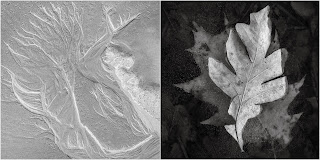"Harry Tuttle: Harry Tuttle. Heating engineer. At your service.
Sam Lowry: Tuttle? Are you from Central Services? I called Central Services.
Harry Tuttle: Ha!
Sam Lowry: But... I called Central Services.
Harry Tuttle: They're a little overworked these days. Luckily I intercepted your call...Officially, only Central Service operatives are supposed to touch this stuff...
Sam Lowry: Sorry. Wouldn't it be easier just to work for Central Services?
Harry Tuttle: Couldn't stand the paperwork. Yes, there's more bits of paper in Central Services than bits of pipe read this, fill in that, hand in the other listen, this old system of yours could be on fire and I couldn't even turn on the kitchen tap without filling in a 27B/6...Bloody paperwork.
Sam Lowry: I suppose one has to expect a certain amount.
Harry Tuttle: Why? I came into this game for the action, the excitement. Go anywhere, travel light, get in, get out, wherever there's trouble, a man alone. Now they got the whole country sectioned off, you can't make a move without a form...Ah ha! Found it! There's your problem.
Sam Lowry: Can you fix it?
Harry Tuttle: No, I can't. But I can bypass it with one of these.
[Holds up a bizarre device]
Harry Tuttle: My good friends call me Harry."
- Brazil (1985),
Screenplay by Terry Gilliam, Tom Stoppard & Charles McKeown
Postscript. I have written before about the mystery of what "sits behind" (and directs) the eye/I/camera to see and take a photograph; and about the equally mysterious joy of just going with the flow of it all. Why do some scenes/compositions attract our attention while we walk past others as if sleepwalking through a void? While it is easy to overthink (even obsess) about seeing, interpreting, and composing - which only disrupts the natural flow - indulging in an occasional self-reflection can also reveal a part of the creative process. In my case, I've always had a penchant for making split-second associations with something either imagined or recalled). What I don't know is whether my inner musings are synchronous-with, antecedent-of, or follow my photographer-self's gaze? I've no doubt experienced each of these variants countless times, but the question of what really happens remains a deep mystery to me. But I have also grown to savor this mystery whenever it presents itself, as it did this weekend, when my wife and I parked our car in a garage before going to see a play in Washington, DC. As I closed my door, and for whatever reason, the vista of pipes, lights, and soiled concrete that met my gaze conjured up a scene from the absurdist Monty-Pythonesque-movie "Brazil" wherein Robert De Niro (playing a character named "Harry Tuttle," who is part heating engineer and part special forces operative) breaks into the Sam Lowry's apartment (Sam is the "hero," played by Jonathan Pryce), and rips apart a section of Sam's wall to expose a bizarre mass of writhing, all-but-living, pipes and electrical conduits! So, there I stood transfixed beside our car, my mind a blank (with a silly grin on my face), mentally replaying what I could remember from this scene from Brazil. The image you see up above is my attempt at using my iPhone to record a Stieglitzian "equivalent" of what I was experiencing while gazing at the vista of pipes, lights, and soiled concrete in a Washington, DC garage 😊
























